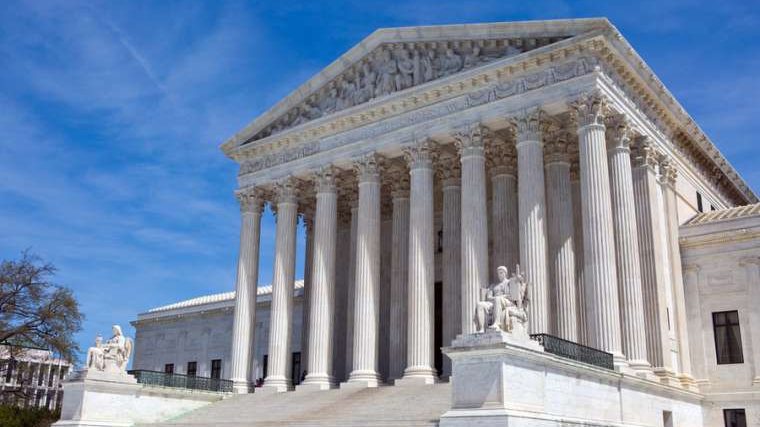The dioceses of Albany and Ogdensburg and other Catholic and Christian ministries last week asked the U.S. Supreme Court to hear their case against New York’s abortion coverage mandate.
The 2017 mandate from the state’s Department of Financial Services required that employers cover abortions in their employee health insurance plans. While the state granted a religious exemption to the rule, the groups challenging the mandate in court claim that it was too narrow and did not exempt agencies which primarily serve or employ people of different faiths.
Plaintiffs in the case include the Diocese of Albany, the Diocese of Ogdensburg, three state Catholic Charities agencies, Anglican sisters, and Baptist and Lutheran churches.
The bishop of Albany told CNA that the state’s mandate affects not only Catholics, but members of other faiths as well.
“There is far too much at stake in terms of religious liberty and freedom of conscience to allow this to stand. It is an issue that affects people of all faiths, not just one faith.” Bishop Edward Scharfenberger of Albany told CNA.
“We are confident that the Supreme Court will preserve our right to practice our faith and fulfill our mission according to our beliefs and not according to the whims of the State,” he stated. “We cannot relent on a matter that affects the dignity of all human lives.”
If the Supreme Court declines to hear the case of Diocese of Albany v. Lacewell, the plaintiffs will be forced to fund abortions in their employees’ health plans. If the groups do not comply with the mandate, they could face fines of millions of dollars per year, said Eric Baxter, senior counsel at Becket which represents the plaintiffs. The law firm Jones Day also represents the plaintiffs.
The petition to the Supreme Court argues that the state is making religious organizations choose between violating their core beliefs, being financially crushed, or closing down services.
“Surely, no one is better served in New York if the Teresian House stops serving the elderly, or Catholic Charities stops serving the poor,” the petition read. “At the very least, before that happens, this Court should decide whether New York can put them to that choice without violating the First Amendment.”
“Just like the Court found that the government must find a way to provide contraception that doesn’t involve the Little Sisters of the Poor, so too must the Court step in and protect these religious organizations from having to violate their deepest moral convictions by participating in abortions,” Becket stated in its case summary.
The Little Sisters of the Poor challenged the federal contraceptive mandate in court after they claimed they were not exempted from the rule which required them to violate their religious mission.
After the Trump administration granted broad religious and moral exemptions to the HHS contraceptive mandate in 2017, the states of California and Pennsylvania sued. The sisters then filed a motion to intervene in that case, and appeared once again before the Supreme Court in 2020, this time to defend their religious exemption.
Lawyers for the sisters argued that the government had ways of providing contraceptive coverage without involving the sisters - such as contacting their insurer separately and setting up contraceptive coverage for employees without cost to the sisters and without involving them in the matter.
New York’s abortion coverage mandate is not the only state abortion policy being challenged in court right now. A lawsuit was filed in early January against the state over its 2019 law legalizing some abortions throughout pregnancy.
The Reproductive Health Act legalized abortion in some cases up until the point of birth. It also excluded unborn babies from the definition of “persons” with legal rights, and removed protections for babies who could survive abortion attempts. Groups challenging the law said it could help enable domestic abuse of pregnant women, by removing legal rights for unborn children.

